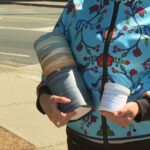Health authorities in British Columbia have issued an urgent warning after detecting a concerning spike in whooping cough cases throughout the Pemberton region. The respiratory illness, formally known as pertussis, has emerged with unusual intensity in recent weeks, prompting officials to activate enhanced surveillance protocols.
“We’ve recorded fifteen confirmed cases since early April, which represents a significant increase over our baseline expectations,” said Dr. Eleanor Weiss, regional medical health officer for the Coastal Health Authority. “What’s particularly concerning is the concentration of cases in school-aged children and their household contacts.”
Whooping cough presents initially with cold-like symptoms before progressing to severe coughing fits characterized by the distinctive “whoop” sound as patients struggle to breathe. The bacterial infection can prove especially dangerous for infants, who may experience life-threatening complications including pneumonia and, in rare cases, brain damage from oxygen deprivation.
The Pemberton outbreak has raised alarm bells among public health officials who note that vaccination rates in certain pockets of the region have declined in recent years. “We’re seeing the consequences of what happens when community immunity begins to wane,” explained Dr. Weiss. “The bacteria finds susceptible hosts and spreads remarkably efficiently through respiratory droplets.”
Health authorities are implementing a multi-pronged response strategy including expanded testing capacity, contact tracing, and targeted vaccination clinics. Officials emphasize that the DTaP vaccine (diphtheria, tetanus, and pertussis) remains the most effective protection against the disease, with recommended doses administered at 2, 4, 6, and 18 months, with boosters at 4-6 years and again during adolescence.
The outbreak highlights persisting challenges in public health messaging around vaccine importance. “We’re battling not just bacteria but also misinformation,” noted Dr. Marcus Chen, infectious disease specialist at Vancouver General Hospital. “The science is unequivocal – these vaccines save lives, particularly when community uptake reaches protective threshold levels.”
Parents of children exhibiting persistent coughing, especially those attending schools in the affected region, are urged to seek medical evaluation promptly. Health officials have established a dedicated respiratory assessment clinic in Pemberton to manage increased testing demands.
This localized outbreak serves as a stark reminder of pertussis’ continued threat despite modern medical advances. The bacterium, Bordetella pertussis, remains endemic globally with cyclical outbreak patterns typically occurring every 3-5 years in most regions with established vaccination programs.
Provincial health data indicates that British Columbia typically records between 100-200 whooping cough cases annually, though numbers fluctuate considerably based on outbreak activity. The current Pemberton situation suggests 2023 figures may exceed recent averages if containment efforts prove unsuccessful.
As communities navigate this health challenge, the question emerges with renewed urgency: how can we better balance individual healthcare decisions with our collective responsibility to protect the most vulnerable members of society from preventable diseases?

























